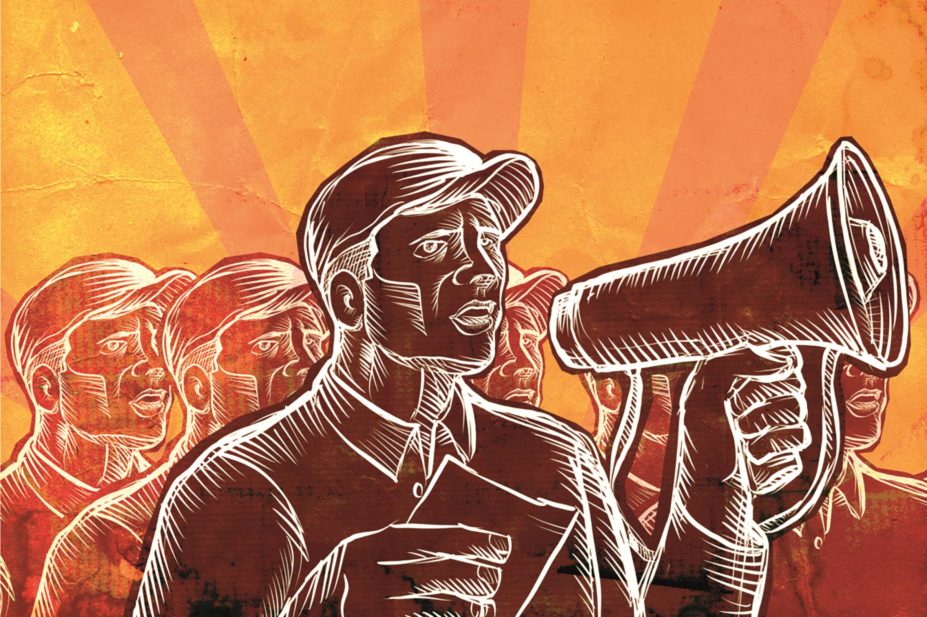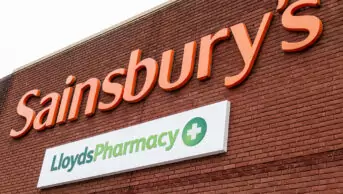
Getty Images
For four hours on the morning of 13 October 2014, healthcare staff in England, including pharmacists, went on strike.
Members of the Guild of Healthcare Pharmacists (GHP), part of Unite the Union, joined the industrial action. They were striking over a pay dispute for the first time in nearly 30 years; a 1% pay rise for all NHS staff was recommended by the NHS Pay Review Body (an advisory non-departmental public body) but rejected by the UK government earlier in 2014.
The GHP believes the action was justified, and it is not the first time NHS pharmacists have gone on strike. GHP members reduced their level of service as part of the November 2011 industrial action over changes to public sector pensions.
The UK community pharmacy sector is not organised in a way that enables unified action. Furthermore, employee pharmacists do not necessarily share the same concerns as pharmacy owners.
The NHS employs some 1.7 million UK staff — and so collective bargaining on terms and conditions can be achieved by unions on a wide scale. Community pharmacy, by contrast, is fragmented; each company drafts its own employment contracts, so employee pharmacists in the sector are unlikely to find strength in numbers.
Boots is the largest single employer in community pharmacy in the UK, with nearly 7,000 pharmacists. The Pharmacists’ Defence Association Union (PDAU) has sought to represent Boots pharmacists on matters of pay and working conditions, a move blocked by Boots. The PDAU has taken the matter as far as the High Court, but lost an important ruling last month that could have paved the way for recognition by Boots on the grounds of human rights. One can only speculate on whether the Boots Pharmacists’ Association — as the preferred union of Boots bosses — would ever go as far as balloting its members to decide on industrial action around terms and conditions.
There are examples of community pharmacists striking elsewhere in Europe in the past year, but rather than walk out over employment issues they took to the streets to protest against market regulation.
Pharmacists in France shut up their shops in September 2014 to oppose the French government’s plans to deregulate sales of over-the-counter medicines, which are currently only available for sale through pharmacies. Similar protests took place in Greece in March 2014 over deregulation of the community pharmacy sector; patients there had to queue for hours to get access to medicines at emergency dispensaries.
Can pharmacists ever be justified in exerting pressure by making patients wait for hours for essential medicines?
In August 2009, the Irish Pharmacy Union took action that led to the closure of over a quarter of pharmacies in the Irish Republic for two weeks. The union put a stop to the shutdown, after it acknowledged that the safety of patients was at risk. That episode was a dispute between community pharmacy business owners and the government over substantial cuts to dispensing payments.
Herein lies a dilemma. Union action is about livelihoods and is often a matter of principle — that is, individuals’ motivation to protect their financial security; to take a stand if they believe their working conditions are unacceptable. Yet downing tools puts pharmacists — indeed any healthcare professional — in a difficult position.
On the one hand, unions expect their members to participate. Unite made clear in an information sheet about the recent NHS action that members who do not observe the strike are “directly undermining the union’s bargaining power” and suggested that they volunteer on the picket line instead of going to work. On the other hand, many pharmacists will think that striking conflicts with their professional responsibilities.
Doctors have gone to such lengths: UK-wide action over changes to medical pensions took place in 2012. Not all members of the British Medical Association participated, but non-urgent services in many hospital and GP surgeries were affected.
The Royal Pharmaceutical Society has previously voiced concern that industrial action may impact on care and pose a risk to patients’ well-being. However, it has acknowledged that trade union members have a right to support legal strike action.
The GHP says it is the responsibility of NHS department managers to ensure safe services are delivered during a strike and not that of union members. Department managers may, of course, be union members themselves, many of whom will choose to work to ensure essential services are provided safely. The GHP says it supports this position fully.
The current action over NHS pay is to continue until 9 November 2014 though so-called ‘work to rule’. This involves staff sticking to the contractual hours of 37.5 hours a week and not working any unpaid overtime during this period. Unite wants its members to take full breaks and start and leave work dead on time.
So there are ways for healthcare workers to make their demands heard while limiting the effect on services to patients.
London residents who commute on the Underground know too well how impactful, or some might say disruptive, a well co-ordinated strike can be. Nothing highlights the importance of a service to the public like making them experience life without it.
Such an approach within healthcare sends the wrong kind of signal. Neither side should resort to brinkmanship in negotiations. NHS staff will continue to put their patients first and, in the case of the current pay dispute, the government must not misinterpret this commitment as acquiescence.


